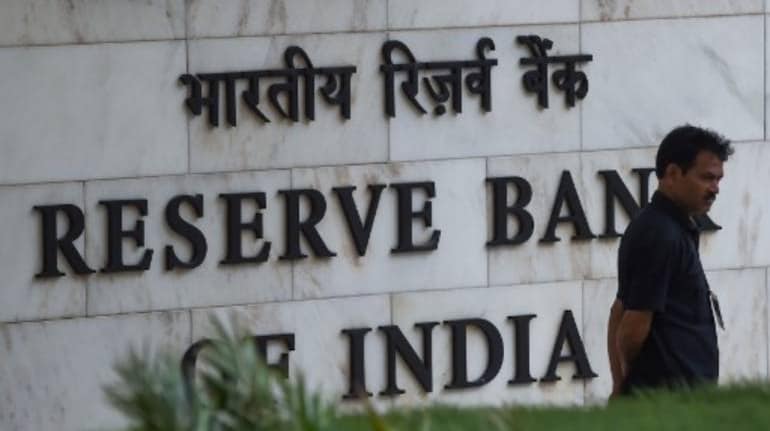



A 69 percent jump in the income from foreign exchange transactions and lower expenditure helped the Reserve Bank of India (RBI) transfer a higher-than-expected surplus to the government this year, the central bank's annual report released on May 27 shows.
The RBI’s foreign exchange transaction income rose to Rs 50,629.18 crore from Rs 29,993 crore in the previous year, the report for 2020-21 said. Overall, the RBI saw its other income rise 59 percent from the previous year to Rs 64,215.66 crore.
On May 21, the RBI said it would transfer a surplus of Rs 99,122 crore to the government for the nine-month accounting period ended March 31, well above the Rs 45,000 crore the government was expected to get from the central bank.
To align its financial year with the Centre, the RBI shifted to April-March calendar and that was the reason the previous accounting period was of nine months—from July 2020-March 2021.
Every year, the RBI pays a dividend to the government from its surplus or profit. In 2019-20, the RBI transferred only 44 percent of its surplus, Rs 57,128 crore, the lowest in the past seven years. In 2018-19, the RBI has transferred Rs 1.23 lakh crore.
Also read: RBI Annual Report: Stress tests indicate banks have sufficient capital even in severe scenario
The central bank’s overall income fell 10.96 per cent to Rs 1.33 lakh crore during the nine-month period to March 2021 even as its expenditure saw a much sharper drop. The fall in overall income was driven largely by a 36.8 percent drop in interest income to Rs 69,057.09 crore.
Expenditure fell 63 percent to Rs 34,147 crore. As a result, the net income for the year was Rs 99,126 crore. Lower provisions contributed to the fall in expenditure. Provisions fell 72 percent year-on-year to Rs 20,710.12 crore.
The size of the RBI’s balance sheet increased by Rs 3.73 lakh crore, or 6.99 percent, to Rs 57.08 lakh crore as on March 31, 2021 from Rs 53.35 lakh crore as on June 30, 2020. The increase on the asset side was mainly due to a rise in foreign and domestic investments by 11.48 percent and 13.75 percent, respectively.
On the liability side, the increase was due to a rise in deposits, notes issued and other liabilities by 26.85 percent, 7.26 percent and 43.05 per cent, respectively.
Also read: RBI’s annual report warns of the risks of a bubble in equity markets
Domestic assets constituted 26.42 percent, while the foreign currency assets and gold,- including gold deposit and gold held in India, constituted 73.58 percent of the total assets. As on June 30, 2020, domestic assets accounted for 28.75 percent, while foreign currency and gold constituted 71.25 percent of the total assets.
During 2020-21, the RBI made a provision of Rs 20,710.12 crore and transferred it to the contingency fund. No provision was made towards the asset development fund.
After the surplus transfer announcement, experts said that the reason could be a change in accounting practice and increased returns from domestic assets.
“The RBI recently allowed itself to book profits on its forex transactions from a weighted average cost perspective. Our estimates show that this move could have helped the central bank boost yields on its foreign asset holdings,” Barclays economists said in a recent note.
Increased holdings of domestic government securities likely further amplified the central bank’s income for the year, the note said.
Adity Nayar, Chief economist of ICRA Ltd, said: “The rise in the RBI's surplus could be linked to higher interest income following the expansion in its holdings of G-sec related to OMOs and TLTROs, as well as the sizeable rise in forex reserves,” Nayar said. TLTROs refer to targeted long-term repo operations used to infuse cash in the banking system for lending to specific sectors.
Founded in 1934, the central bank operates under the Reserve Bank of India Act of 1934. The act mandates that profits made by the central bank from its operations be sent to the Centre. “After making provision for bad and doubtful debts, depreciation in assets, contributions to staff and superannuation funds 2 [and for all other matters for which provision is to be made by or under this Act or which] are usually provided for by bankers, the balance of the profits shall be paid to the Central Government,” Section 47 of the Act says.
Discover the latest Business News, Sensex, and Nifty updates. Obtain Personal Finance insights, tax queries, and expert opinions on Moneycontrol or download the Moneycontrol App to stay updated!
Find the best of Al News in one place, specially curated for you every weekend.
Stay on top of the latest tech trends and biggest startup news.